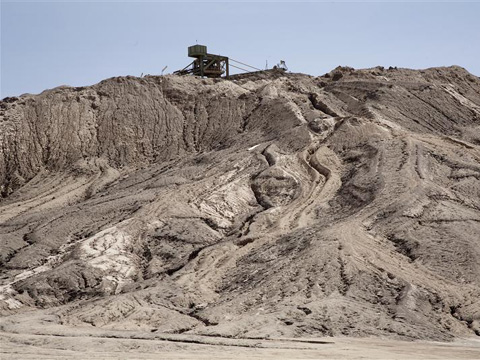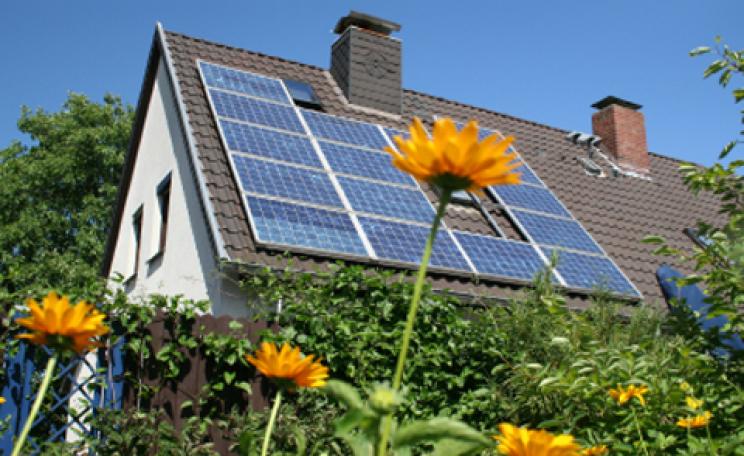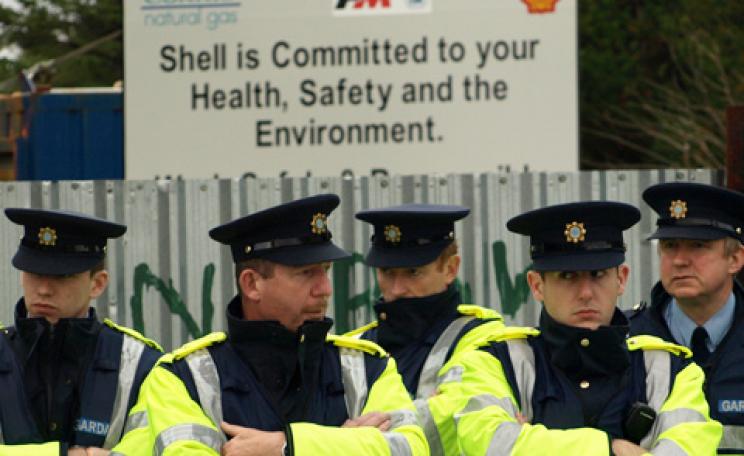Petrol prices have been at a record high since April, when they hit £1.20 a litre for the first time. Last week's national average was £1.17, according to the website petrolprices.com.
High petrol prices are bad news for drivers, which means almost all of us, but those who care about carbon emissions may see some good in all this. Surely, the logic runs, if petrol prices are soaring, more car owners will use public transport instead, drive less and walk more, buy smaller and more efficient cars? By the same token, won't high petrol prices stimulate the development of alternative fuels?
Sadly, it doesn't work that way. Repeated studies have shown that petrol price rises have only a tiny impact on demand. The cost of petrol is comparatively low compared with life's other necessities, and rising incomes over the last 40 years have reduced petrol's share of household budgets. This is borne out by the continuing increase in car ownership in the UK. Transport experts even suggest that petrol prices would have to double before there is any discernible impact on carbon emissions.
Pump logic
Prices at the pump rose from 68p a litre in 1998 to 109p in 2008, according to the Department for Transport. That's a real-terms increase of almost 30 per cent, allowing for inflation. Yet motorists were completely undeterred, with the number of licensed vehicles in the UK rising from 27 million to 34 million over the same period. Although car engines are becoming more efficient, delivering more miles to the gallon, demand for fuel over same period rose 4 per cent, partly because big cars are becoming more popular than small ones. Between 1998 and 2008, the proportion of cars with engines smaller than 1.2 litres fell from 18.2 per cent to 11.6 per cent in the UK, while those over two litres rose from 8.5 per cent to 13.7 per cent.
With transport accounting for 23 per cent of UK carbon emissions, Jeremy Clarkson seems to have won the battle for hearts and minds. Dr Andreas Schafer, a lecturer in transport at Cambridge University and author of the book Transportation in Climate Constrained World, says research has proven again and again that price increases barely reduce demand for petrol. For example, US studies found that for every 10 per cent increase in fuel price, demand drops by less than 1 per cent. In other words, a doubling in fuel price would only reduce demand by around 10 per cent.
'The main reasons are that people have become richer and worry less about the price of fuel compared with two or three decades ago,' says Schafer. 'Cars have become more efficient, so fuel is a smaller part of total travel costs and we have become more dependent on cars - there are fewer alternatives.'
Managing without a car is also much easier in the city and that country. In London, for example, 43 per cent of households are car-less, compared with just 10 per cent in rural areas.
Crude currencies
Despite our rising wealth, petrol prices remain a sensitive political issue. In June, chancellor George Osborne announced a review of petrol duty and mooted the idea of a 'fuel duty stabiliser', whereby the amount of tax levied on petrol will go down whenever the price of crude oil goes up. Petrol taxes have fallen sharply reduced over the last decade, from 82 per cent of the pump price in 1998 down to 62 per cent in 2008, according to the Department for Transport.
But it is the price of crude oil, rather than the price of petrol at the pumps, that will shape our energy future. Oil prices are extremely volatile, which undermines the willingness of industry to risk large sums of money on researching and developing cleaner fuels. They have no way of knowing whether their investment will be able to compete on price with petrol. For example, in 2008, the price of a barrel of oil reached almost $147 US dollars, before slumping to $47 and then staging a partial recovery to today's price of around $76. Shafer confirms that these price swings deter investment in green alternatives: 'The uncertainty about future prices is a big problem,' he says.
The reason UK petrol prices have not fallen in line with the price of crude is mostly to do with the weakness of the pound on the currency exchanges. Oil is traded in dollars and a weak pound will buy less of it. A spokesman for the motorists lobby group the RAC says that wholesale oil prices charged by manufacturers to refiners and retailers have risen, for reasons that remain unclear. Prices are only likely to fall further if the pound recovers and if there is a price war between big supermarket chains. In the meantime the increase in VAT to 20 per cent announced in January 2010, together with two more fuel duty rises scheduled for October and January, will add 3-4p a litre to the price of petrol, the RAC says. A spokesman is doubtful about the likely impact of Osborne's proposed fuel duty stabiliser: 'The world price of oil is just one factor affecting prices at the pump. It remains to be seen what difference it will make.'
To peak or not to peak?
In the past, big rises in the cost of oil have prompted massive investment in alternative fuels. The best example, Schafer says, is Brazil, which began investing heavily in biofuels during the oil crises of the 1970s, when it found it was achieving lower and lower prices for its sugar exports and paying more and more for oil. Today, ethanol derived from sugar cane accounts for more than half the fuel consumed by cars and vans in Brazil, Schafer says.
The US has also raised its ethanol production over the last decade, becoming the world's number one producer, although environmentalists are concerned that the fuel, which is derived from maize, uses significant amounts of fossil fuel in the production process. Ethanol only accounts for 3 per cent of US motor fuel consumption but this could double by 2012, thanks to incoming legislation passed under the Bush administration, at a time when oil prices were rising.
For Shafer, the relationship between oil prices and the development of alternatives is clear: 'In the first oil crisis of 1973 the crude oil price went up from $12 per barrel to almost $50, adjusted for inflation, and during the second oil crisis in 1979 it rose from $50 to $100. The first oil crisis generated lots of research, in gas turbine engines for cars, electric vehicles, hydrogen fuel cell vehicles, but in the mid-1980s the oil price was back to $20 a barrel and all the research was shelved. And now, only recently because of our increasing concern about climate change, have we continued those studies.'
Despite this, Schafer does not believe that oil prices will rise sharply in future. 'My guess is that oil prices will not rise very much in the next 10 or 20 years, because there is still so much oil left in the ground,' he says. He does not believe the 'peak oil' theory, that rising demand for oil around the world will soon outstrip the available supply: 'I think there are enough oil resources to satisfy demand. If prices rise, more producers will come online, there will be more investment in new ways of exploiting the oil fields. We have heard the same stories again and again [about peak oil], yet there is no convincing evidence that we will soon run out.'
Emotional dependence
Not everyone agrees with Schafer's analysis. Dr David Bonilla, senior research fellow in transport and energy economics at Oxford University, says: 'I think we are reaching peak oil, so I would say that prices will rise. There is rising demand from emerging economies like China, India and Brazil, it is clear that oil companies are having problems finding new oil - the oil spill in the Gulf of Mexico will reduce drilling in that part of the world - so I would say the price is going to go up.'
Unfortunately Bonilla believes petrol prices still have a long way to rise before there is any serious fall in demand. A useful analogy, he says, is to compare the price of petrol per litre with that of bottled water: 'They are about the same, and this tells you that energy is too cheap. The price of energy would have to at least double... to have some impact on consumption.'
However, Bonilla makes the intriguing point that emotions may play a much bigger role in reducing humanity's reliance on petrol than money alone. 'In the US, the government is talking about achieving energy independence, but this only started after the 9/11 terrorist attacks on the World Trade Center,' he says. 'It is an emotional response to US dependence on Middle Eastern oil. There has been a political shift in the US and the role of emotion is very much under-estimated.'
Greg Marsden, senior lecturer and leader of the Sustainable Transport Policy Group at the University of Leeds, believes that taxes based on the amount of CO2 emitted by different vehicles may be the most effective way to cut carbon emissions from transport. In 2003 the Company Car Tax Initiative levied higher taxes on the most polluting fleet cars. Within three years, emissions from fleet cars (owned by companies for their employees) had gone from being 5 per cent more polluting than the average privately-owned car to 5 per cent less. Road taxes for all cars have since been graduated to favour those with low emissions. 'If the Government doesn't want to clamp down on car ownership, incentives to make people buy the most efficient car could be quite effective,' says Marsden. 'Then again, people do tend to buy according to the fact that they love a Saab, or whatever it is.'
It seems that Jeremy Clarkson will continue to rule for a while yet.
Mark Jansen is a freelance journalist
| READ MORE... | |
 |
NEWS Electric cars can 'fit with current driving patterns' First results of UK-wide trials dispel fears about the 'range anxiety' of electric cars running out of power: typical users' driving habits can remain unchanged |
 |
NEWS Electric cars and wind turbines face metal supply shortages The Government's much-vaunted ambition for a low-carbon economy could be threatened by shortages in key metals and the environmental cost of developing new mining facilities |
 |
INVESTIGATION Think nuclear is clean energy? Ask the Nigeriens As the new nuclear renaissance grows, so too does uranium extraction. In Niger, which boasts some of the world's richest deposits, NGOs say that the poor are being exploited for the West's 'clean energy' |
 |
NEWS Jatropha better suited to local communities, not biofuel markets Study predicts the yields of jatropha will fall in the next decade and that it is better suited to community-level, rather than industrial-scale, production for the biofuel market |








